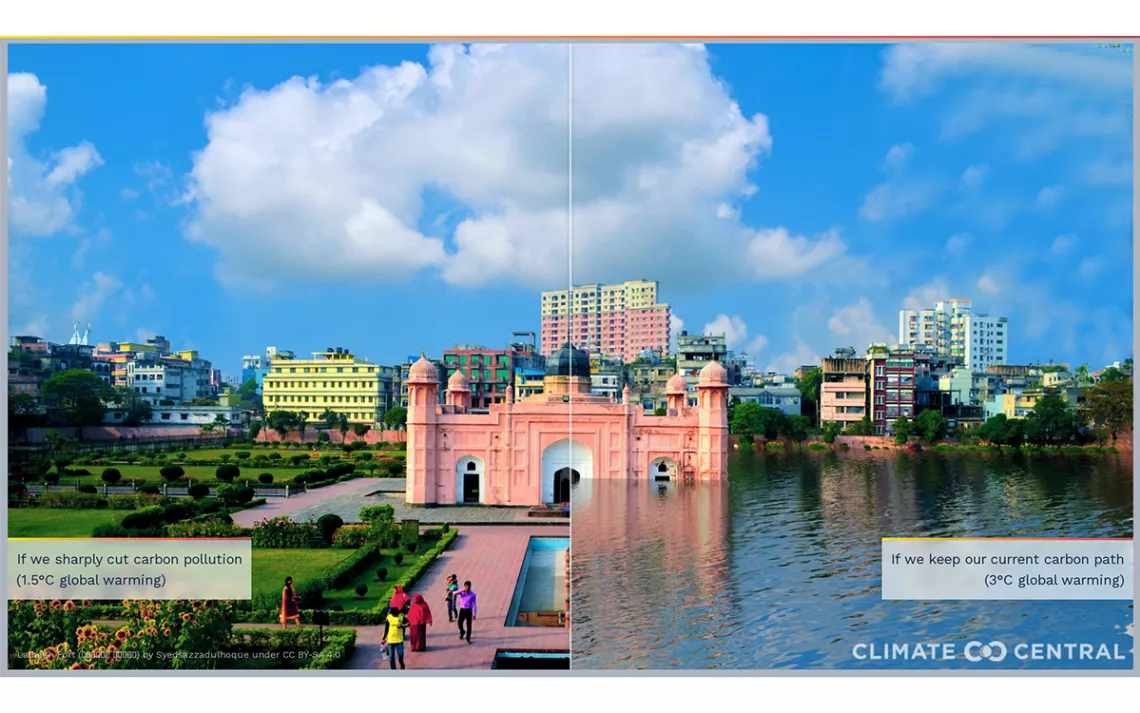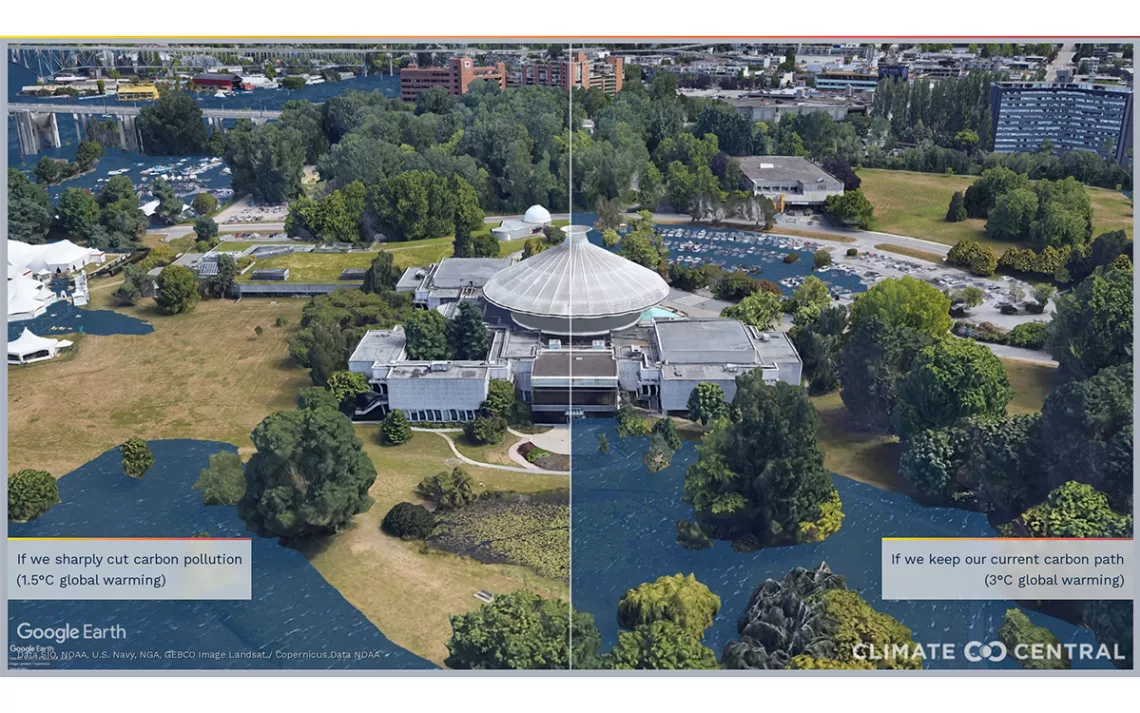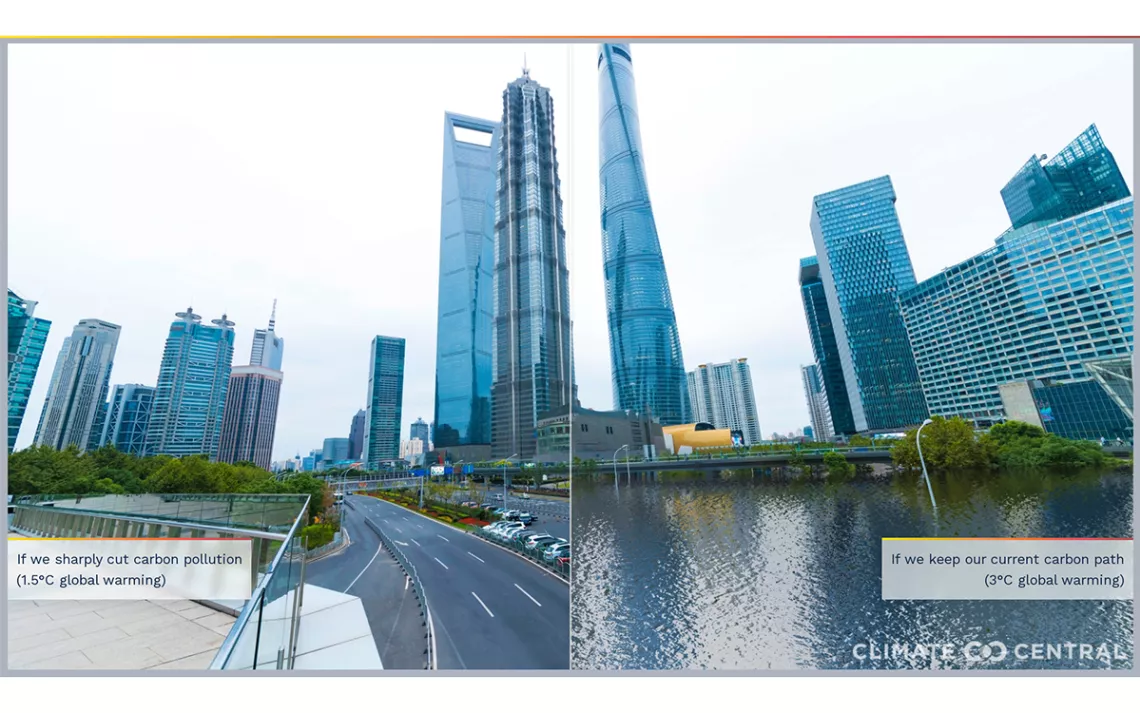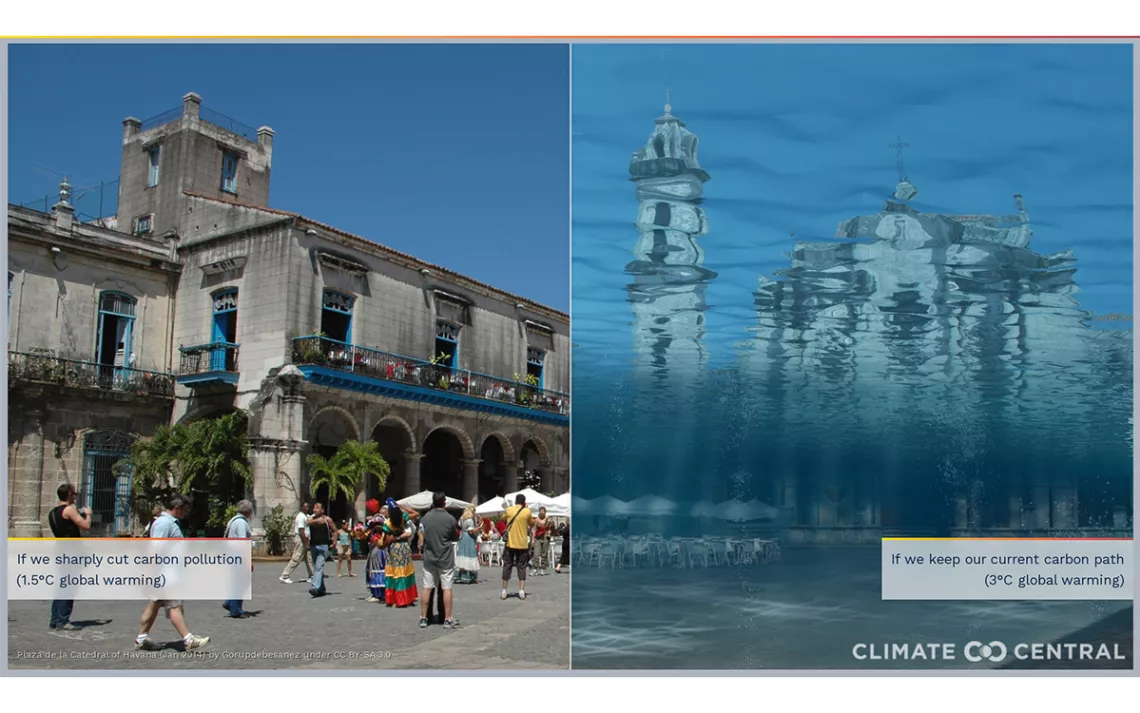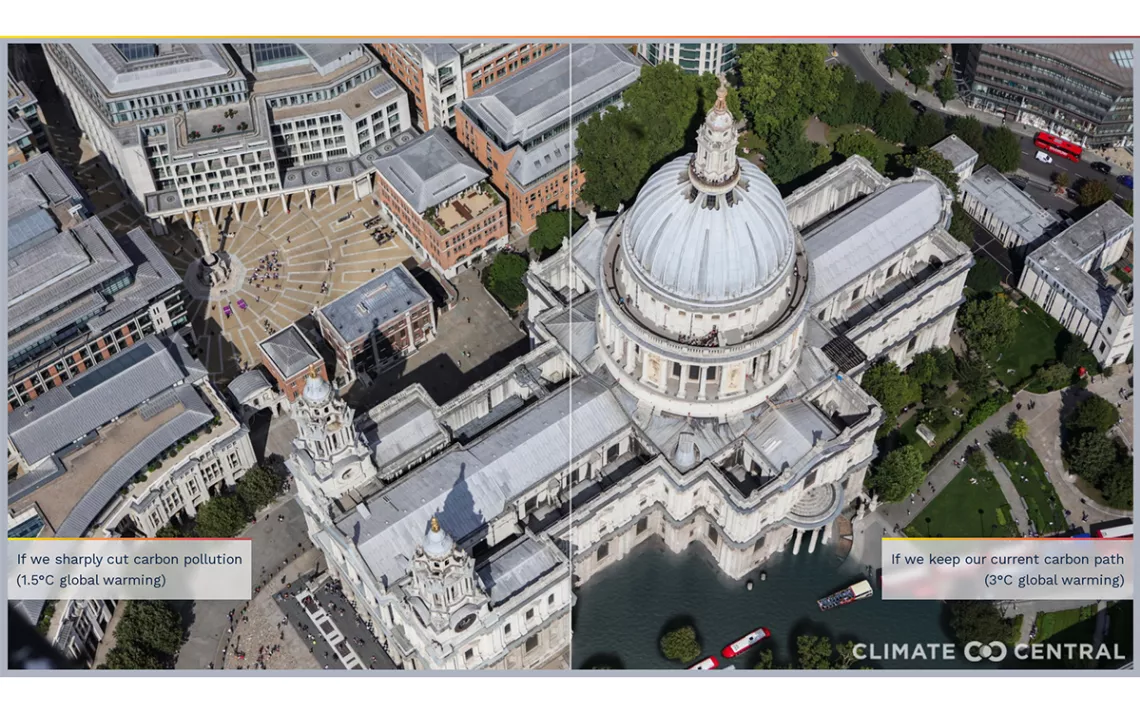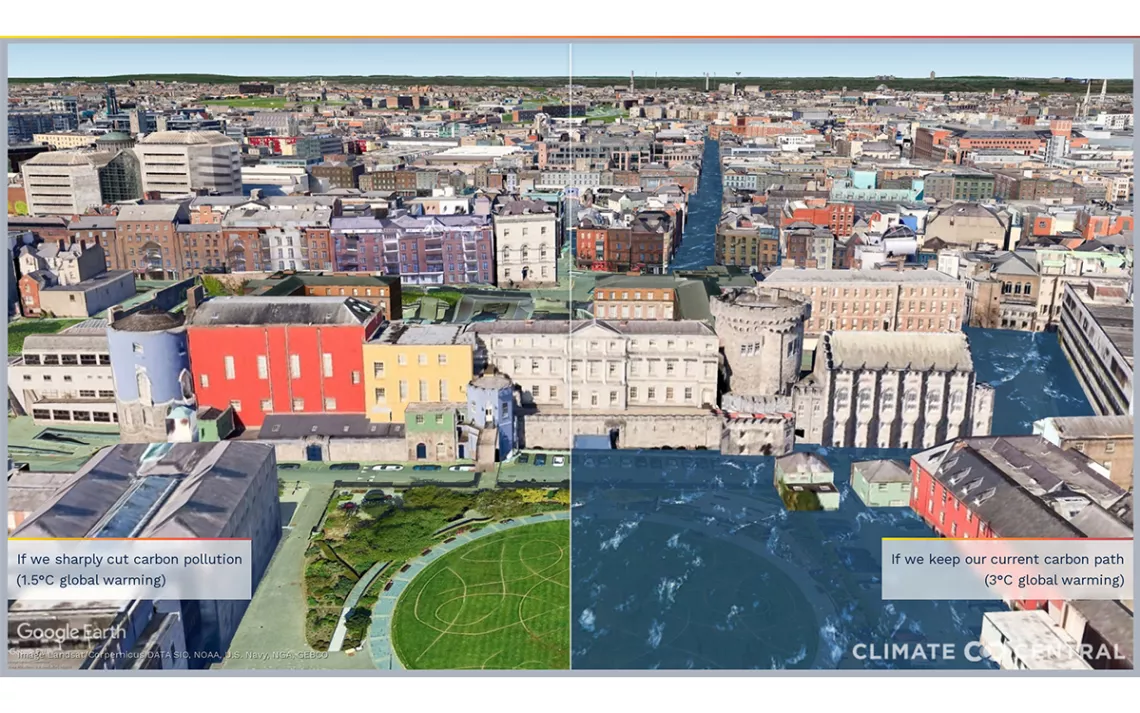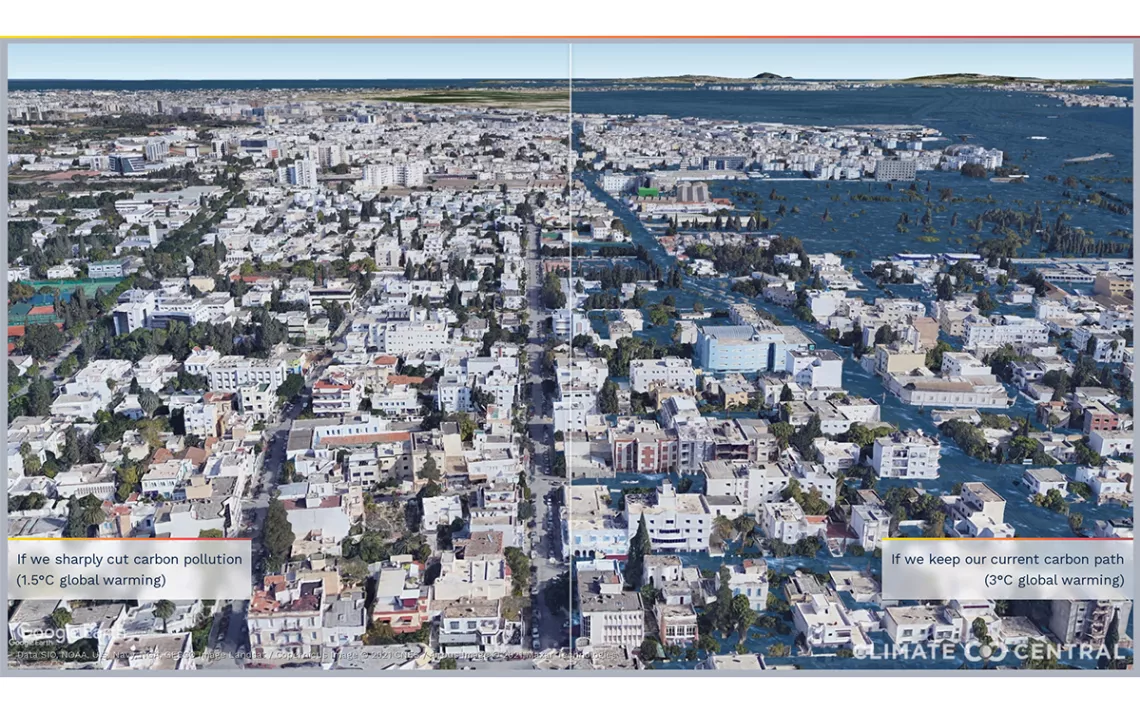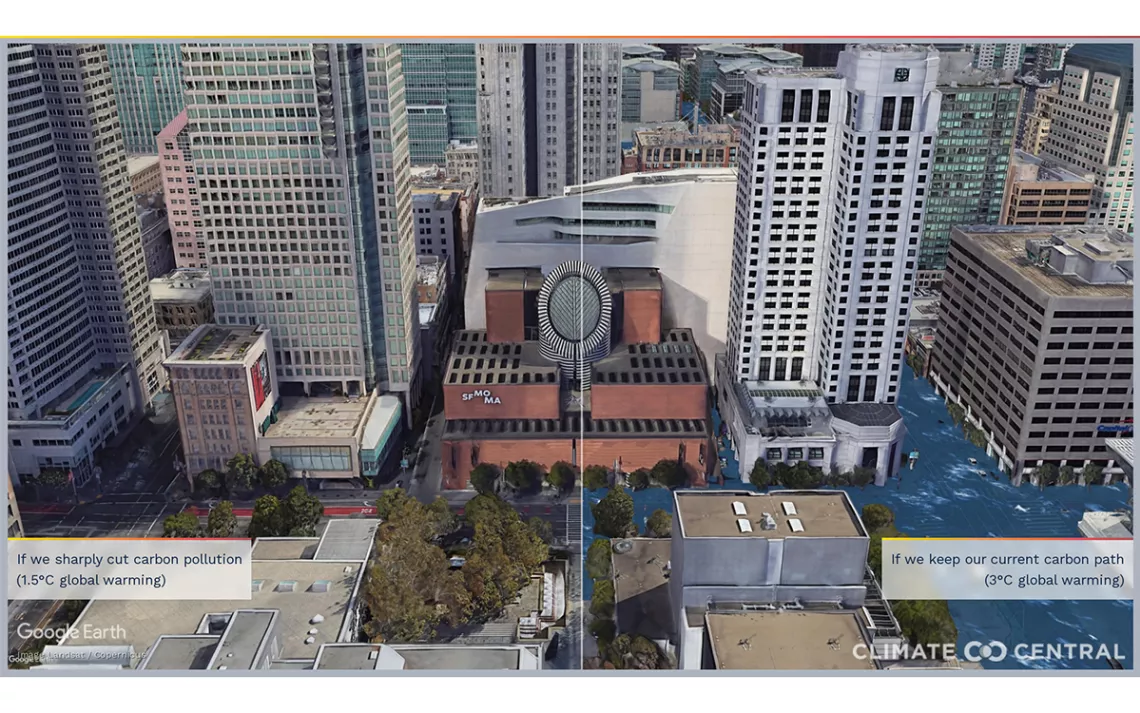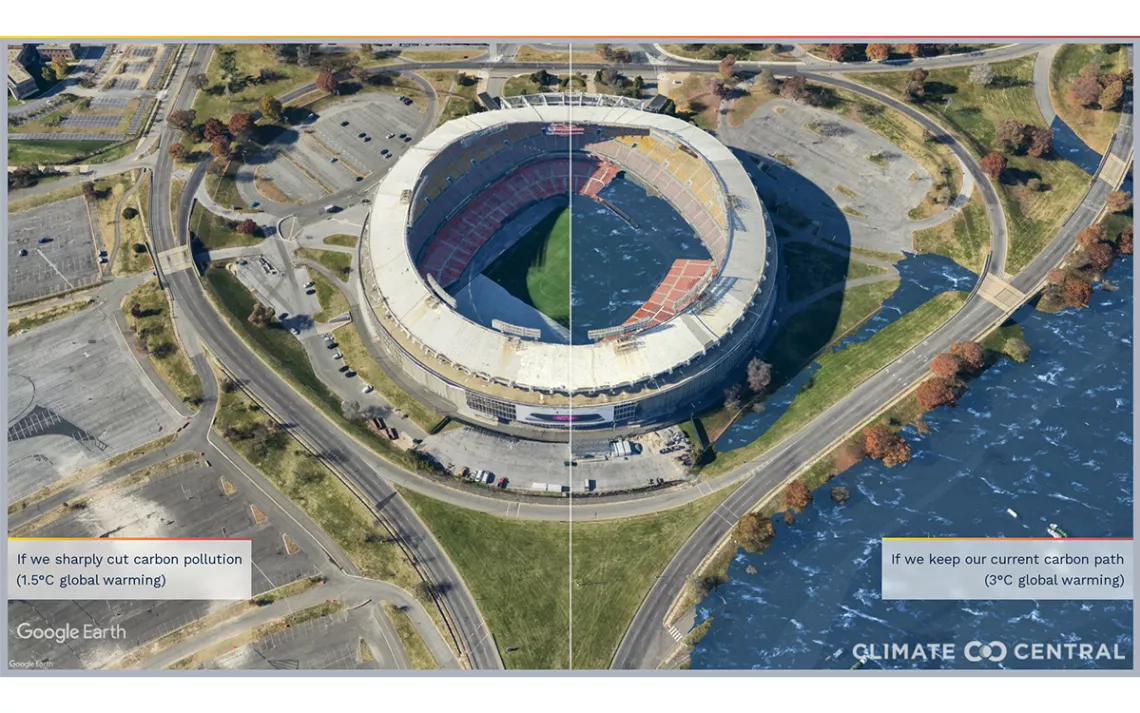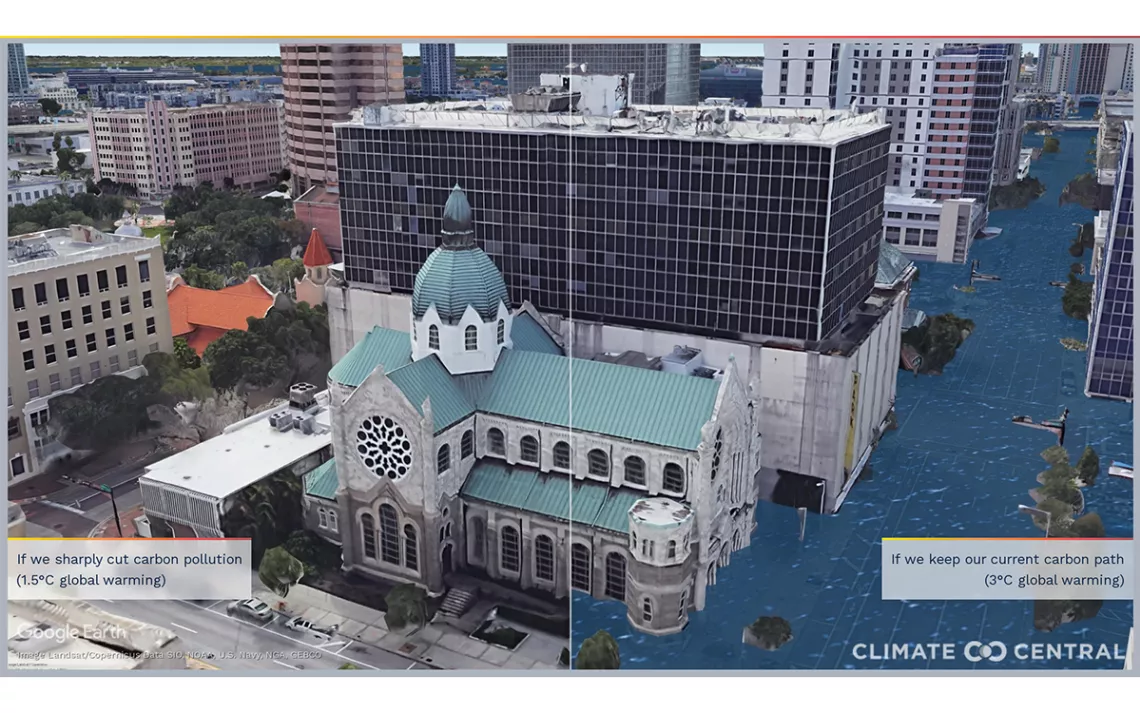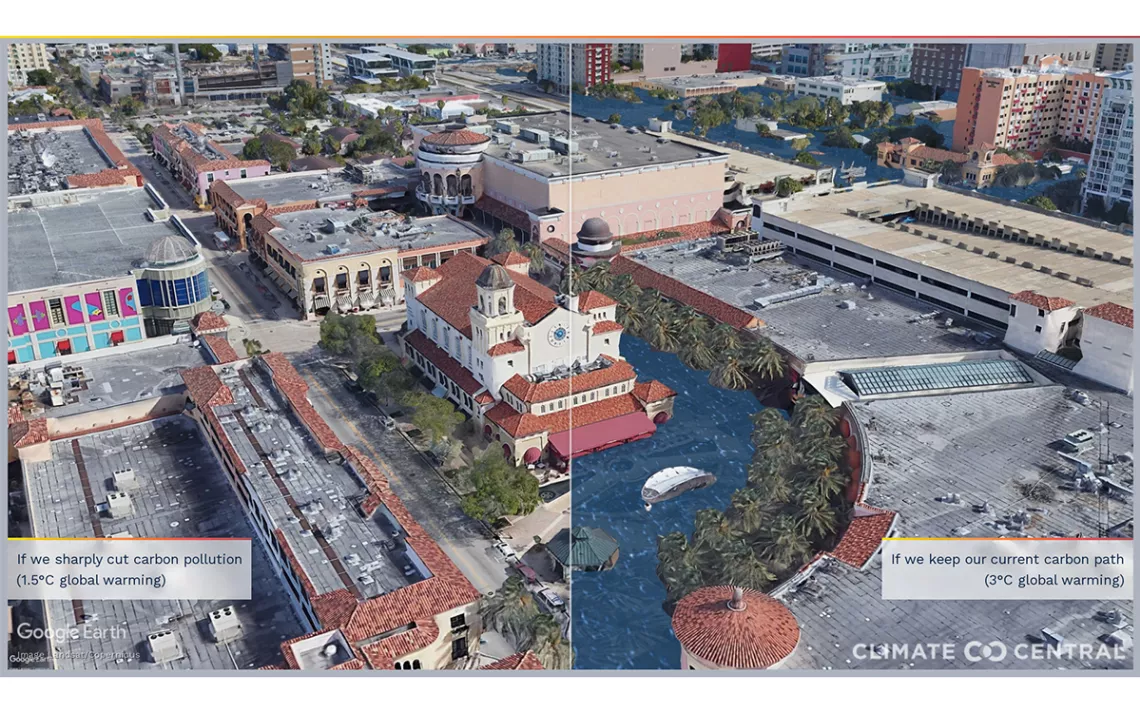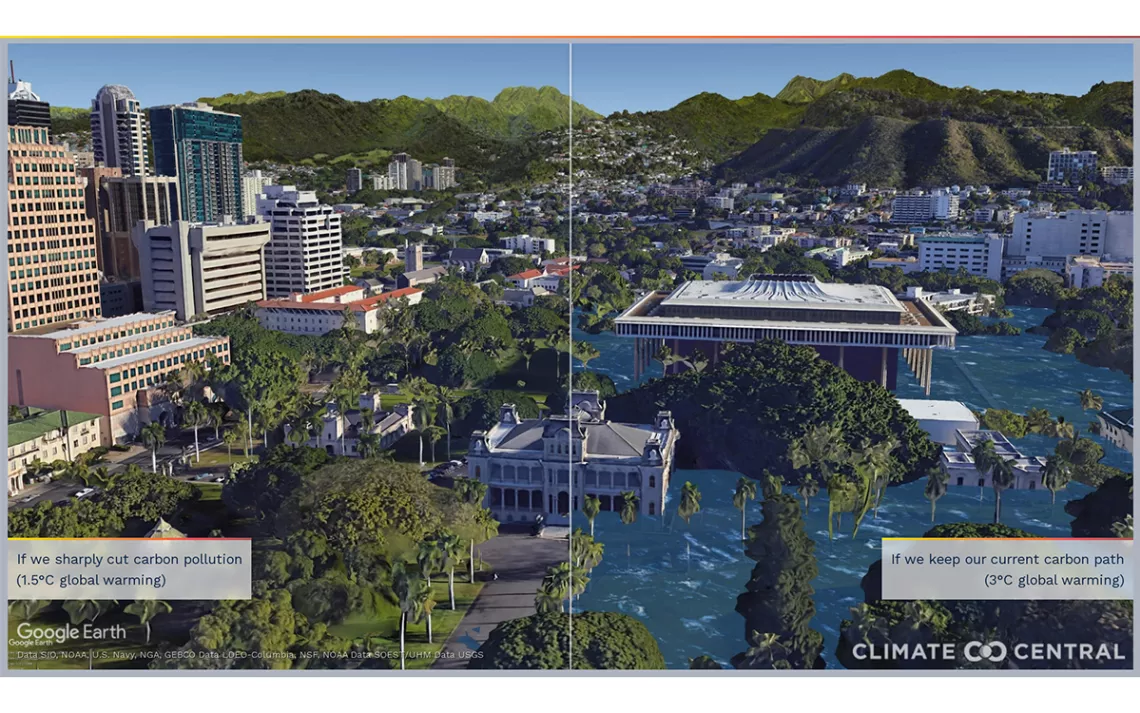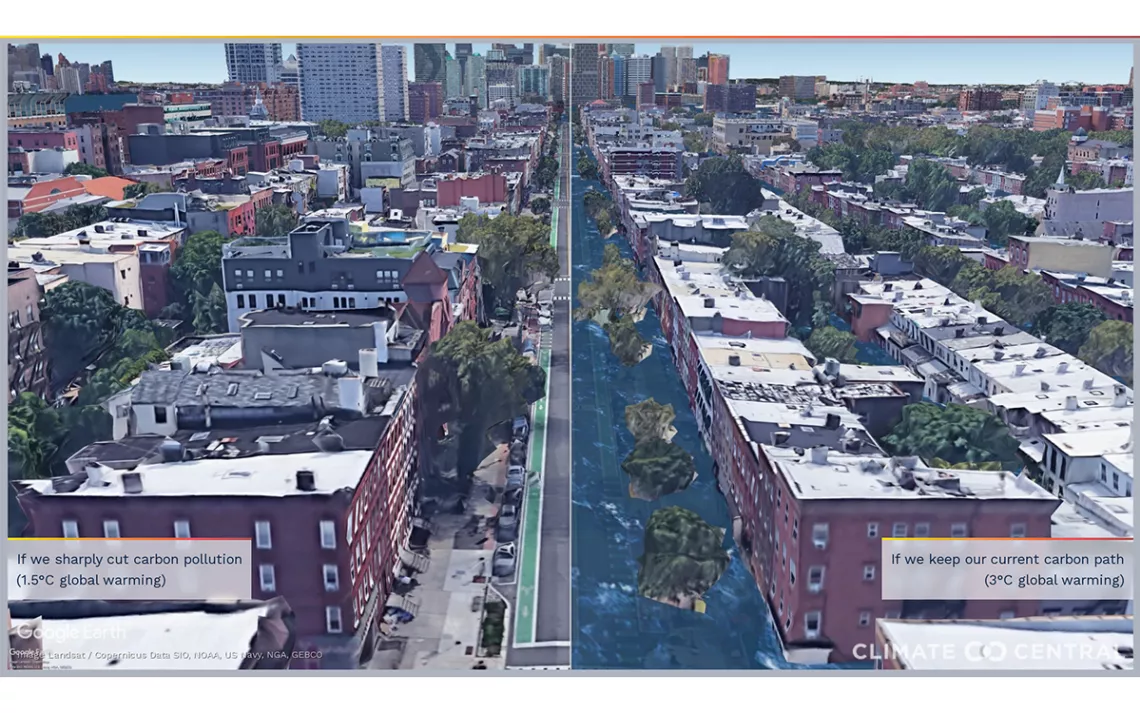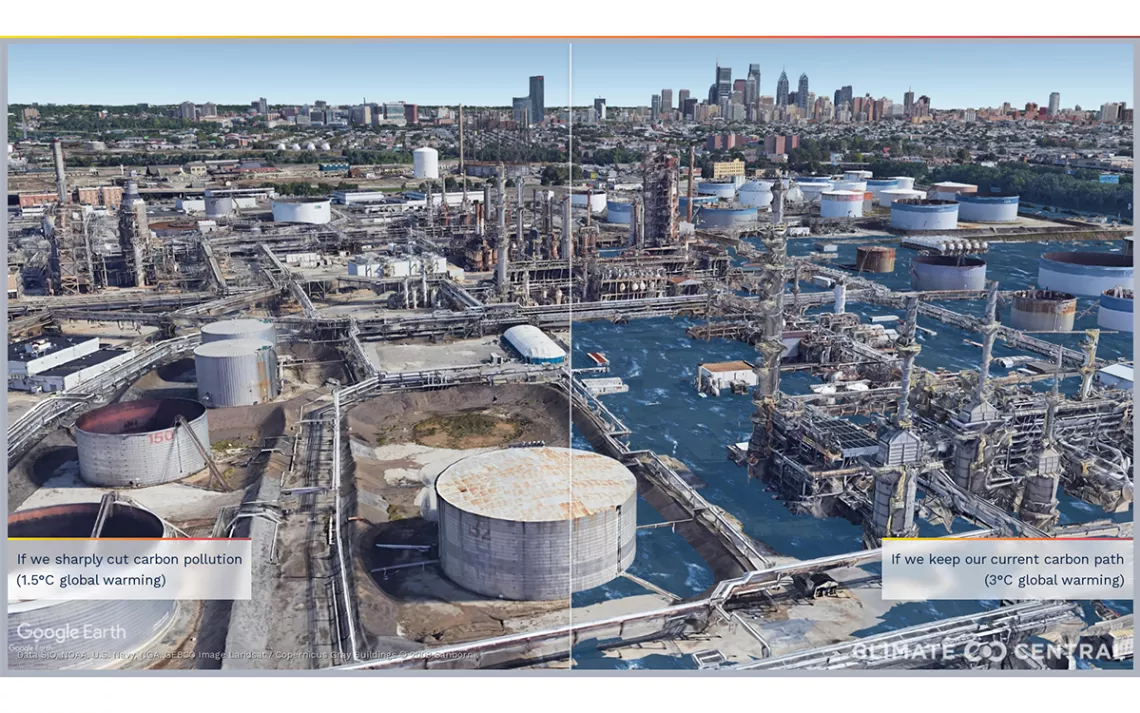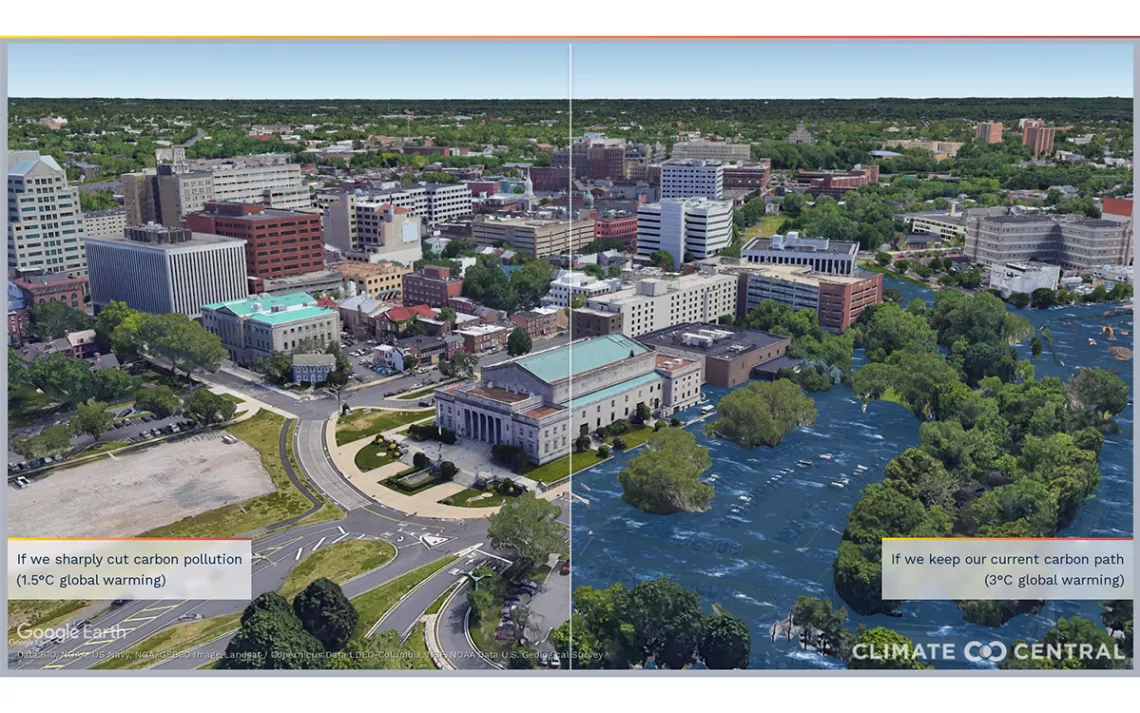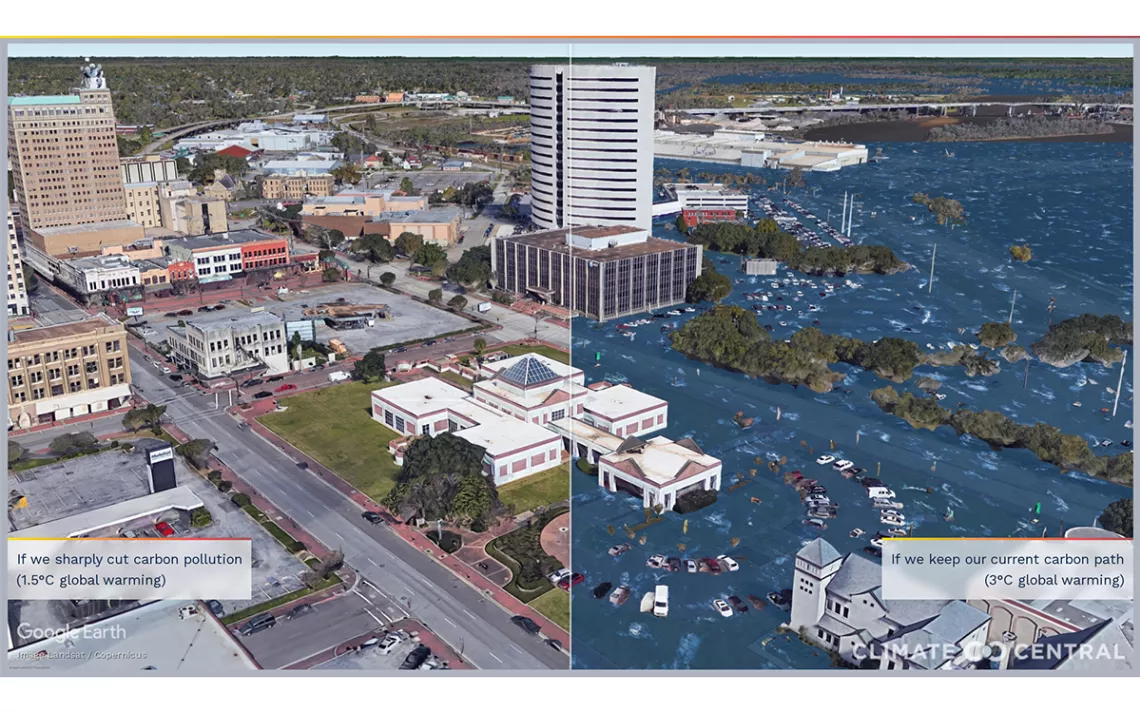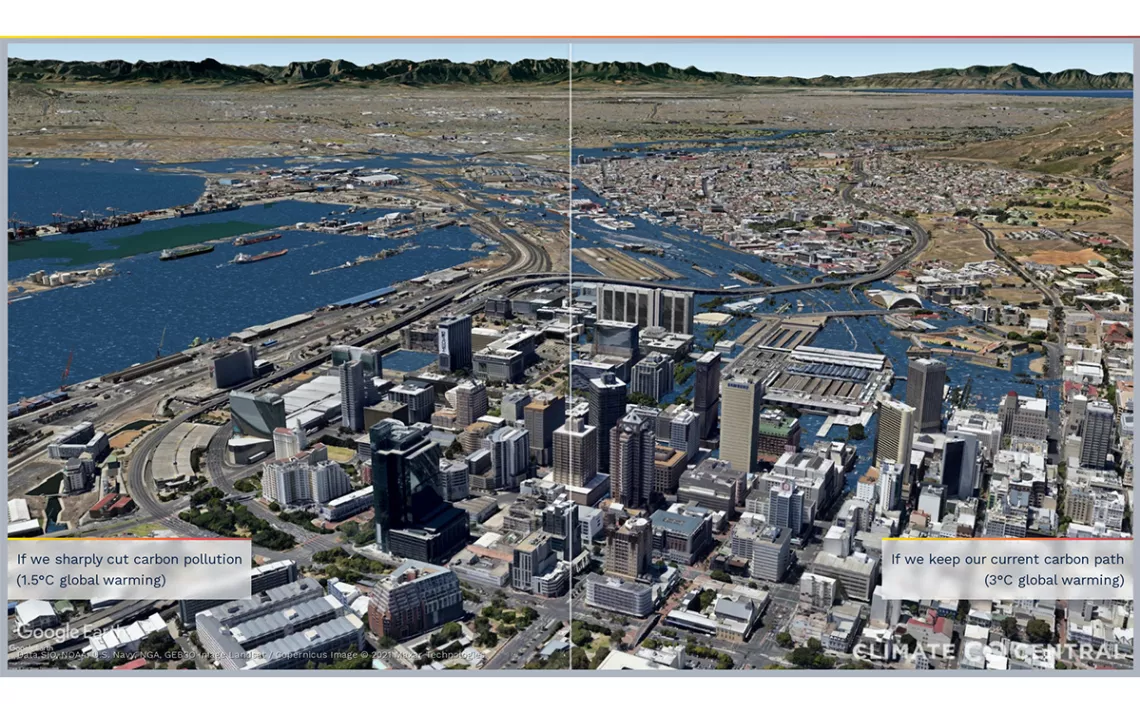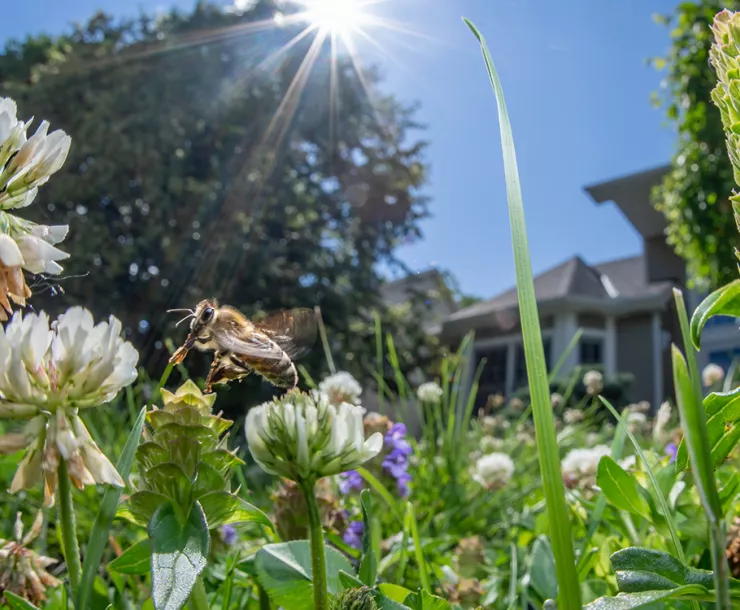Here’s What the World Could Look Like With 5.4° Fahrenheit of Global Warming
Picture the future underwater
Photo-Illustrations by Climate Central. Images courtesy of Climate Central.
According to a recent report from the United Nations Environment Program, countries’ current greenhouse gas reduction pledges are nowhere near meeting the goals of the Paris Agreement to keep global warming below 1.5° Celsius (or 2.7° Fahrenheit). Right now, we’re on a trajectory for global temperatures to rise at least 2.7°C (or about 5°F) by the end of the century. And that may be an optimistic scenario. A recent article in Nature reported that six in 10 climate scientists expect Earth will warm at least 3°C (or 5.4°F) by 2100.
What would such an awful scenario look like? The folks at Climate Central recently published a series of photo illustrations that offer a glimpse into such a future. They took photographs of some of the world’s most famous landmarks—St. Paul’s Cathedral in London, the National Mall in Washington, DC, the Hong Kong waterfront—and then used the best available science and some Photoshop wizardry to show the degree to which those places could end up underwater.
The photos are, no doubt, disturbing. But resist the temptation to look away. This could be our future—unless we act now to stop burning fossil fuels and cutting down forests.
 The Magazine of The Sierra Club
The Magazine of The Sierra Club
